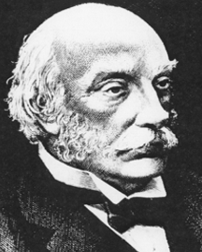


Lord Rayleigh was a British physicist. He was educated at Trinity College, Cambridge, where he graduated as Senior Wrangler in 1865. As a successor to James Clerk Maxwell, he was head of the Cavendish Laboratory at Cambridge from 1879-1884, and in 1887 became Professor of Natural Philosophy at the Royal Institute of Great Britain. He was elected in 1873 as a Fellow of the Royal Society and served as its president from 1905-1908. He received the Nobel Prize for Physics in 1904 for his 1894 collaborative discovery (with Sir William Ramsay) of the inert elementary gas argon. Rayleigh's research covered almost the entire field of physics, including sound, wave theory, optics, colour vision, electrodynamics, electromagnetism, the scattering of light, hydrodynamics, the flow of liquids, capillarity, viscosity, the density of gases, photography and elasticity, as well as electrical measurements and standards. His research on sound was embodied in his Theory of Sound and his other extensive studies in physics appeared in his "Scientific Papers." |

All web page HTML © by Richard Culham
Most recent update: 28-03-04